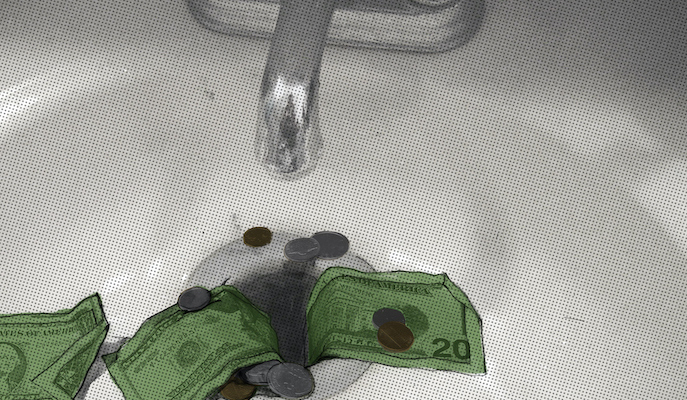NC Medicaid Program Audit Reveals Improper Medicaid Payments
Failures in the department’s provider enrollment and re-verification processes and a lack of checks on disciplined providers resulted in improper Medicaid payments.

Source: Getty Images
- An audit of North Carolina’s Department of Health and Human Services (DHHS) revealed that the department failed to properly conduct Medicaid provider credentials verifications and other key measures, resulting in the Medicaid program spending millions of dollars on improper Medicaid payments.
“The NC Department of Health and Human Services’ (Department) Division of Health Benefits (Division) is responsible for screening and enrolling Medicaid providers in accordance with CMS requirements. The Division outsources most of the provider enrollment process to General Dynamics Information Technology – GDIT (Contractor), although the Division has ultimate responsibility,” the audit began.
The process involved sampling provider applications for Medicaid enrollment and applications for re-verification and conducting tests on disciplined providers who should have been removed from Medicaid enrollment.
The audit involved 172 enrollment applications, 191 re-verification applications, 172 flagged providers, and 66 disciplined providers.
“Because of the test nature and other inherent limitations of an audit, together with limitations of any system of internal and management controls, this audit would not necessarily disclose all performance weaknesses or lack of compliance,” the report noted.
Ultimately, the report identified four major areas in which the DHHS failed to ensure that only qualified providers were receiving Medicaid reimbursement.
The Department failed to identify and disenroll Medicaid providers whose licenses had been suspended or terminated, according to the report. The department also permitted providers who had license limitations to continue receiving payments from Medicaid.
Additionally, the third-party contractor that the Department hired to re-verify professional credentials failed to do so, but the Department did not check their work nor did it compel the contractor to verify provider ownership information during re-verification.
More specifically, 69 percent of the sampled providers that had been disciplined (18 providers) were not removed from the Medicaid program, meaning that they could continue to deliver care to beneficiaries and receive Medicaid reimbursement.
Three disciplined providers were not removed in a timely fashion, with the DHHS waiting months before removing disciplined providers from Medicaid enrollment in two separate cases.
As a result, around 2,400 beneficiaries received care from suspended or terminated providers, placing patients at risk.
The North Carolina Medicaid program paid out at least $1.64 million to unlicensed providers.
The auditor offered recommendations for changes that DHHS should make to rectify the issue.
The report suggested that the department correct its processes around higher-risk providers, particularly by boosting oversight. They should specifically increase oversight of the Local Management Entities/Managed Care Organizations, the audit recommended.
North Carolina's DHHS started implementing changes immediately.
“We take every instance of an unqualified provider very seriously and any overpayment is unacceptable,” Mandy Cohen, MD, Secretary of the DHHS, stated in her response to the audit, included in the report.
“The Division has determined that, except for the payment risk associated with not validating provider ownership, the potential overpayments subject to recoupment from the providers reviewed in the audit was $13.4 million. The team is pursuing recoupment of all confirmed overpayments.”
Improper payments have plagued the Medicaid program for years.
CMS sought to crack down on fraud and improper payments in public payer programs under the Trump administration through a set of Medicaid program integrity initiatives. In 2019, the US Department of Health and Human Services (HHS) found that improper payments amounted to $57.36 billion. More specifically, Medicaid had a 14.9 percent improper payment rate.
Seema Verma, who was CMS Administrator at the time, targeted provider enrollment and screening standards as part of the effort to reduce improper payments.
“Our progress on improper payments is historic, but there’s more work to be done,” Verma said at the time. “CMS has taken a multifaceted approach that includes provider enrollment and screening standards to keep bad actors out of the program, enforcement against bad actors, provider education on our rules and requirements, and advanced data analytics to stop improper payments before they happen. These initiatives strike an important balance between preventing improper payments and reducing the administrative burden on legitimate providers and suppliers.”
Apart from the audit, North Carolina’s Medicaid program is in the midst of a challenging transformation process as it attempts to transition from its fee-for-service model to management by privatized managed care organizations. The Medicaid transformation is supposed to be ready by July 1, 2021.
